Research
Publications catalogue
The publications catalogue of the Department collects the information from ARCA [ITA], the institutional open-access archive of Ca’ Foscari scientific production.
It is also accessible from cerCa, the Ca’ Foscari bibliographic platform.

Working in research
PhD Degree is the highest level of academic education. It is a limited admission degree programme and lasts for at least three years. It allows graduates to develop methods and skills to pursue highly qualified research.
Short-term research fellowships allow Master’s Degree graduates to pursue short-term research (less than 12 months normally) including them in existing projects and research groups.
Research grants allow Master’s Degree graduates and PhDs to pursue research activities at the university or in the projects offered to the candidates.
In this section also a list of the ongoing research grants and topics [ITA], including the area research fellowships and the research fellowships on specific projects.
Discover all the other opportunities of international recruitment at Ca’ Foscari: our University is highly committed in achieving excellence in research, developing international partnerships and funding new talents.
Research areas
- Classical and Medieval Greek and Latin literature
- Ancient, Medieval, Modern and Contemporary History
- Near Eastern, Classical and Medieval Archeology
- Ancient and Medieval Epigraphy and Philology
- Romance and Byzantine Studies
- History of Art
- Italian Literature (Middle Ages to the 20th Century and beyond)
- Linguistics
- History of Religion
- Cultural Anthropology, Ethnology, Ethnolinguistics and Geography
- Cataloguing and study of manuscripts and books
- Digital humanities
Research groups
GIEFFRA - International Group of Studies on Women and the Family in ancient Rome
The GIEFFRA group brings together Roman scholars experts in different disciplines (epigraphers, jurists, papyrologists, numismatics, archaeologists, art historians, philologists…), to study with a documentary approach women and the family in the Roman world, from the Republican period to Late Antiquity, in Italy and in the provinces.
Through technical knowledge and less exploited types of sources, a renewed study is possible on the Roman family, on the political and social ties of kinship, on the presence of women in political, dynastic, legal, family, religious and social life. The research projects enable to extend the analysis to a large scale or to focus on geographical area (Rome, Italy, the Latin speaking provinces, the Greek speaking provinces).
EMoDiR - Early Modern Religious Dissents & Radicalism
EMoDiR is an international research group dedicated to the study of religious differences, conflicts and plurality in Europe during the early modern period.
Analysis, both at local and transnational levels (from a predominantly European perspective), transcends traditional historiographic boundaries (notably national and/or confessional) to examine the discursive constructions of religious dissent and the socio-cultural practices: this plurality defied confessional ‘orthodoxies’ that were establishing within states’ growing and modern-evolving apparatus.
Besides the specific cultural practices and intersections of different forms of religious dissent, the group analyses also specific mechanisms of cultural transfer: circulation of manuscripts and printed texts, publication strategies, social networks and male and female dissenters, their journeys, and their meetings within heterodox environments.
Between Republic and Principality
Coordinators: Roberto Cristofoli (Università di Perugia), Alessandro Galimberti (Università Cattolica del Sacro Cuore di Milano) and Francesca Rohr (Ca’ Foscari University of Venice).
The research group ‘Between Republic and Principality’ aims at exploring in-depth the knowledge of the period between the 1st century B.C. and the 1st century A.D., a crucial phase of Roman history in which the crisis of Republican institutions grew after several solutions were attempted to ensure the survival of the Roman Republic and reforms were eventually set to guarantee the future of the Roman State as a Principality.
Experts in several fields (history, legal history, philology, epigraphy, archaeology, papyrology, numismatics) work together in a multidisciplinary approach which creates opportunities for scientific dialog and collaborations between scholars from different generations and nationalities.
Poikilia - History of Religion and Antropology
The Poikilia Research Group originated from a series of international seminars as part of the academic course “History of Religions”.
It is characterised by an interdisciplinary methodology that connects the historical, anthropological and other fields, making it possible to actively involve teachers, researchers, and students.
The purpose is the implementation of an area for debate on topical questions concerning ancient and modern history/ies.
Issues such as “body”, “rituality”, and “voice” will bring focus on the relation between Norm and the construction of the human being. The project aims to the publication and dissemination of the collected scientific results, also through the creation of a website which will include an open access archive.
Archaeology at Ca' Foscari
A showcase of the archaeological projects at Ca’ Foscari University, involving the Department of Humanities in innovative and research opportunities for students and volunteers.
Digital and Public Humanities
The Venice Centre for Digital and Public Humanities funded by MIUR through the Department of Excellence Project
Research projects
The Department periodically highlights in this page some of the main ongoing research projects, at a national or international level.
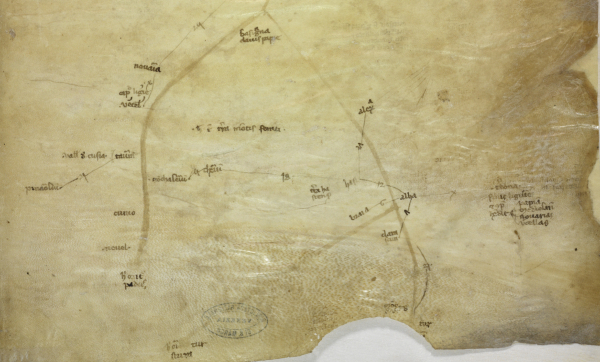
GEODETIC - Geography and Cartography in Dante's «Comedy»
Researcher: Tiziano Zanato (fellow Giovanna Corazza), Grant: € 288.859,2 (H2022 Marie-Sklodowska Curie Actions - Postdoctoral Fellowship)
GEODETIC aims to explore a scantily studied and undervalued aspect of Dante’s poem: the geography of our world. Alongside its imaginary afterlife sceneries, the Comedy shows 14th- century Italian and European geographies, most of which are still recognizable today. Dante outlines an unprecedented and detailed image of the world, but above all he reveals profound geographical awareness, which is an avant-garde expression of the renewed relationship with the environment typical of the urban culture of his time. This project proposes an updated analysis, integrating a philological approach with the territorial data through a specifically interdisciplinary methodology. After a thorough examination of geographical areas described in the Comedy, a focus on selected places will allow the geo-historical reconstruction of the physical territories mentioned by the poet through relevant geographic, historiographic, literary, iconographic, and cartographic sources. The evaluation of Dante’s geographical knowledge in its own environmental framework will open up an innovative perspective on his geo-poetics as an essential constituent of the poem. The project will be developed under the supervision of Prof. Tiziano Zanato in partnership with the University of Notre Dame (IN, USA) and the Department of Historical and Geographic Sciences and the Ancient World (DiSSGea) at the University of Padua.
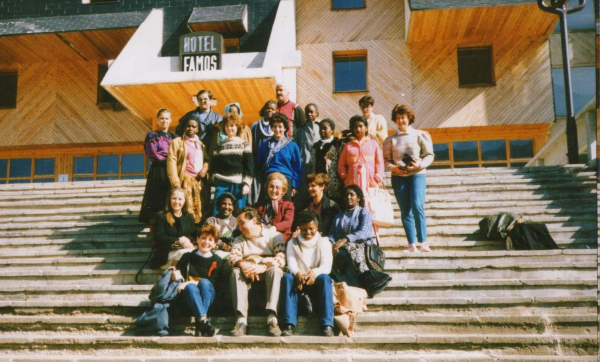
WO-NAM - Women and Non-Alignment in the Cold War era: biographical and intersectional perspectives
Researcher: Chiara Bonfiglioli, Lenght: 60 months (31/10/2028), Grant: € 1.598.515 (Horizon Europe - ERC Consolidator Grant)
The WO-NAM project investigates the history of women’s participation in the Non-Aligned Movement during the Cold War era, studying the roles of female leaders, women’s movements and women’s organizations, as well as transnational debates on women’s rights with a specific focus on the UN Decade for Women (1975-1985). Bringing together women’s and gender history, global history, and intellectual history, the project relies on biographical and intersectional methods to explore the significance of women’s internationalism. WO-NAM will draw on rich and diverse archival collections on women’s activism in its focus on the case studies of Yugoslavia, Egypt, Tunisia, India, and Cuba. The project also includes a survey of existing archival collections on women’s internationalism in Western Europe and the United States, and the creation of a data-base with new digital resources (documents, biographies, maps, oral history interviews).

CowDom - Between domestication and ferality: cattle-human relationships in the making of post-colonial SouthAmerican society
Researcher: Valentina Bonifacio, Lenght: 60 months (31/08/2028), Grant: € 1.611.768 (Horizon Europe - ERC Consolidator Grant)
First arriving on what is now known as the American continent with Columbus, cattle have been described as one of the colonisers' main allies in the occupation of South American lands. Over the next 500 years, their history was intertwined with various economic, ecological, political and identity factors, giving shape to collectives with their own diverse characteristics. From the 19th century onwards, the introduction of cattle breeds with uniform characteristics, considered to be more economically efficient, overlaps with this first history of colonisation, giving shape to new forms of relationships between humans and cattle, and to new ecological and productive systems based on the intensive exploitation of animals and land. Focusing on specific geographical areas, COWDOM aims to investigate the factors behind these transformations and their effect on the way human-cattle relations - and society more generally - are conceived and projected into the future.
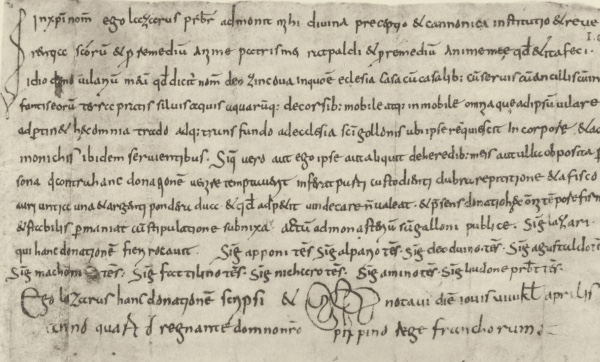
DiLaDi - Digital Latin Dialectology: Tracing Linguistic Variation in the Light of Ancient and Early Medieval Sources
Researcher: Béla Adamik, Lenght: 60 months (31/08/2028), Grant: € 1.598.515 (Horizon Europe - ERC Advanced Grant)
DiLaDi is an interdisciplinary project that aims to perform a novel comprehensive study on the variation of the Latin Language over the 1st millennium A.D. considering the geographical and chronological perspectives as well as the transition from Latin to Romance by processing and analysing textual errors (deviations from the norm) of ancient and early medieval primary documents with the help of the Computerized Historical Linguistic Database of Latin Inscriptions of the Imperial Age (LLDB) . DiLaDi aims to give a breakthrough impetus to relevant research by involving a group of sources that have so far not been adequately considered in research: original parchment charters predominantly of private law from mostly the 7 th -8 th centuries, that are available in large numbers and are very rich in data reflecting linguistic changes, the involvement of which could open up further perspectives for the research of history and dialectology of late Latin based on working with a Database which has so far relied mainly on inscriptions. The project is realized through the collaboration of the Department of Humanities of Ca’Foscari University of Venice and the Research Group for Latin Historical Linguistics and Dialectology of the HUN-REN Hungarian Research Centre for Linguistics in Budapest. As a result, this research will allow for a better understanding of the processes that led to the development of Romance languages and determined the linguistic, ethnic, and even cultural features of medieval and modern Europe.
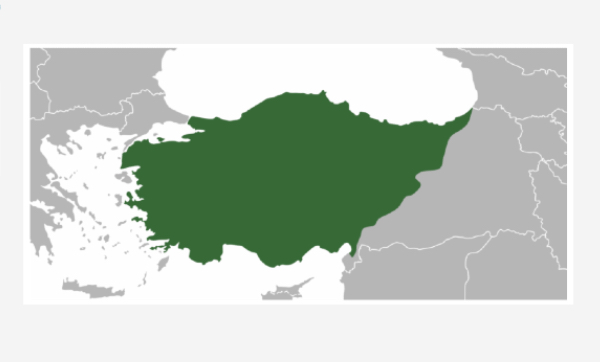
CAncAn - Communication in Ancient Anatolia
Researcher: Annick Payne, Lenght: 60 months (31/10/2028), Grant: € 1.598.515 (Horizon Europe - ERC Consolidator Grant)
The project addresses the question of messages, modes and participants in the communication of three Anatolian cultures, Lydians, Luwians and Phrygians, ca. 1200–546 BCE. These cultures are currently underresearched in isolation by different academic subjects, preventing a comprehensive picture and modern editions of all their text corpora. The project examines text structure, processes of meaning-making, and transmission, considering both internal and external sources from other Ancient Near Eastern and Classical texts with a combined semiotic and narratological approach. The analysis of these texts and their material supports, with a focus on narrative and discourse, will allow a new insight into formative parameters of ancient societies. This marks a huge shift from traditional, event-based readings. The project will provide new data for understanding cultural identities and the potential of their differences, which can be extended to other Ancient World studies.
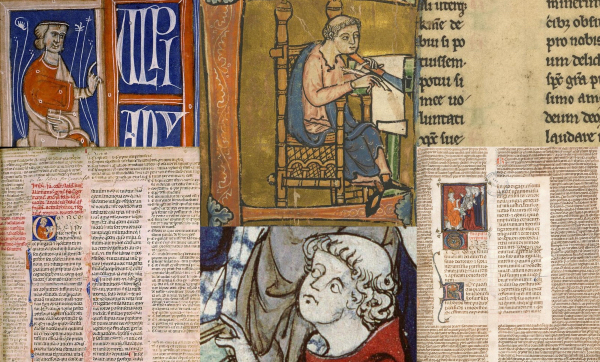
Vernacular Literature and Medieval Universities. The Birth of a New Transnational Literary Identity (France and Italy, 1220-1399) – MEDLUNI
Researcher: Cristiano Lorenzi, Lenght: 36 months (31/1/2028), Grant: €297.164,16 (H2023 Marie-Sklodowska Curie Actions - Postdoctoral Fellowship)
MEDLUNI aims to investigate how medieval universities contributed to shaping the vernacular literatures of Western Europe. The research is based on the hypothesis that many shared identity traits of medieval literatures stem from the osmosis between vernacular texts and university practices – a phenomenon that, between 1220 and 1399, involved French and Italian authors active as magistri or scholares. The objective is to identify the authors and texts that bear witness to the emergence of new urban literary traditions linked to the rise of universities. The study will analyse the rhetorical and material tools transferred from university culture to literature, as well as the circulation of texts, manuscripts, and persons who, between Italy and France, contributed to the formation of literary networks in the medieval vernacular world.
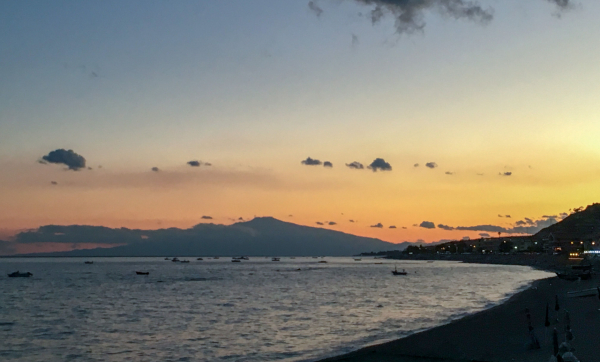
SSE1K - Science, Society and Environmental Change in the First Millennium CE
Researcher: Helen Foxhall Forbes, Lenght: 60 months (31/12/2027), Grant: € 1998963 (Horizon Europe - ERC Consolidator Grant)
The Mediterranean in the first millennium CE saw significant environmental and climatic changes which have been identified as causes for significant short- and long-term societal and political processes and events, such as the rise and fall of empires. SSE1K examines textual, archaeological and environmental evidence to investigate human experiences of environmental and climatic variation in the Mediterranean in the first millennium CE, focusing in particular on how people responded both intellectually and socially to these changing conditions. The project considers the complex relationships between people and their environments, especially in relation to how human perceptions and ways of thinking shaped societal, political and religious responses to environmental and climatic change, and explores issues such as how the circulation of knowledge and adaptability intersect with sustainability and resilience in pre-modern societies.
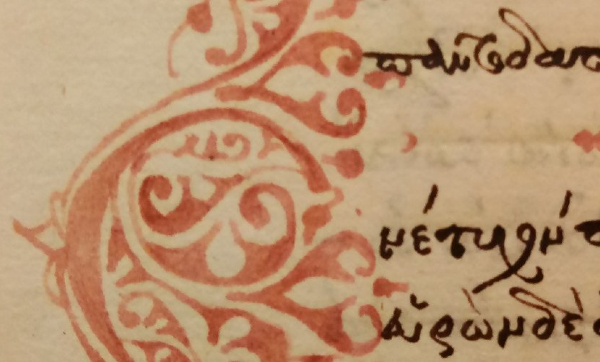
DEA - Digital Encyclopedia of Atticism: Creating a Digital Tool for the Study of Greek Lexicography
Researcher: Olga Tribulato, Lenght: 60 months (30/11/2027), Grant: € 260.680 (bando FARE Ricerca in Italia - III edizione)
The project, funded by a FARE grant of the Italian Ministry of University (MUR), aims to enhance the digital component of the ERC project “Purism in Antiquity: Theories of Language in the Greek Atticist Lexica and their Legacy” (PURA). PURA proposes a linguistic, philological and historical approach to the theories of Greek purism encoded by Atticist lexica (2nd-3rd c. AD.) The core of the philological analysis is entrusted to an online, open-access resource, the Digital Encyclopedia of Atticism, which hosts entries on lexical items, ancient lexicographers, and manuscripts. The FARE grant will enable PURA to:
- improve the structure of the data by applying the Cadmus programme developed by Daniele Fusi;
- significantly expand the corpus of its lexical entries, with a post-doc (Elisa Nuria Merisio) fully dedicated to this.
Through the FARE project, PURA will extend its impact in the realm of Digital Humanities and its representativeness in the field of Classics.

Towards a history of Italian antisemitism (1870-2022). Rhetorics, narratives, “conspiracies”
Researcher: Simon Levis Sullam, Lenght: 24 months (30/11/2027), Grant: € 119.753 (PRIN2022 PNRR)
This research project aims at writing for the first time a history of antisemitism in Italy, from the country’s unification until today. It examines in particular the rethorics of anti-Jewish discourse, identifying its main components: catholic, racist, economic, conspirationist etc. It analyzes its narratives, based on the premise that antisemitism is constructed on recurring narrative schemes (for example, historically: the blood libel; and particularly in the modern and contemporary period: conspiracies). It focuses especially on conspiracy theories, which appear as a frequent construct in modern antisemitic ideology and discourse and which define what we may call “conspirationist moments”: a formula we paraphrase from Pierre Birnbaum’s definition of the affaire Dreyfus as an “antisemitic moment”. We will consider especially those moments in which Jews were seen as a menace for the political, moral and social order, in terms of national allegiance, religious and moral behavior, supposed economic role, “racial” difference, real or imagined political role.

Advanced Training in Digitization of Older Texts - ANTIDOTE
Researcher: Franz Fischer, Lenght: 36 months (31/08/2027), Grant: € 400.000 (Erasmus+ Programme)
ANTIDOTE is a European network of six universities and one library funded by Erasmus+ (KA220-HED-D3AFF6E). The aim of ANTIDOTE is to offer training in the digitization of older texts, primarily medieval texts, to advanced students and staff wanting to upskill. The training includes a wide range of digital skills and competences that can be applied to medieval texts and manuscripts and transferred to other fields, too. This includes the ability to create, process, link and manage text and image data, as well as to use and design data sets, databases and digital scholarly editions.
The ANTIDOTE network consists of the University of Iceland (coordinating institution, Reykjavík, Iceland), Charles University (Prague, Czech Republic), Klosterneuburg Abbey Library (Klosterneuburg, Austria), Comenius University (Bratislava, Slovakia), Ca’ Foscari University of Venice (Italy), CNRS (Paris & Lyon, France), and Trinity College Dublin (Ireland).
Contact: Prof. Franz Fischer, Venice Centre for Digital and Public Humanities (VeDPH, DSU),
Project website: ANTIDOTE

LabEcoInt - Labour and Ecology in an International Perspective: Porto Marghera in the Phosphates Archipelago
Researcher: Francesco Vecchiano (fellow Lorenzo Feltrin), Lenght: 36 months (31/08/2027),Grant: € 320924,16 (H2022 MSCA - Postdoctoral Fellowship)
This project focuses, on the one hand, on the origins and decline of Porto Marghera’s industrial area from an international perspective and, on the other hand, on the political economy of phosphate from a historical perspective. Phosphate is a key mineral in the production of chemical fertilisers. Porto Marghera’s first phosphorus fertiliser factories were established in the 1920s, in a context of competition among European powers for North African raw materials. Montecatini’s fertiliser plants integrated Porto Marghera, downstream, with the expanding “green factory” of capitalist agriculture in Italy’s Northeast and, upstream, with the “Phosphate Archipelago”, a network of extractive and industrial spaces on the two shores of the Mediterranean. Today, phosphate remains a key ingredient in the global food regime, and the disruption of the phosphorus cycle is a prominent ecological threat. This research sheds light on how phosphate invisibly links not only mining, industry and agriculture, but also labour and ecological conflicts.
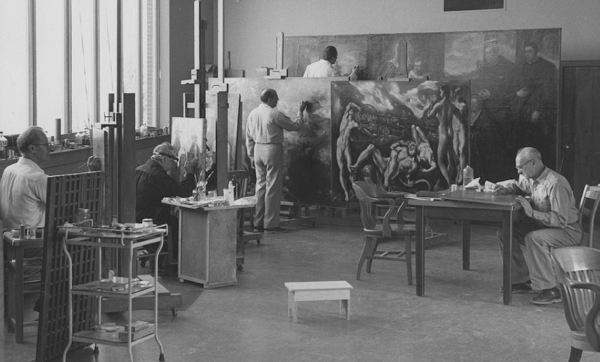
Italian Restorers move to America
Researcher: Paolo Delorenzi, Lenght: 24 months (3/2/2027), Grant: € 89000 (PRIN 2022)
This project aims to reconstruct the events that connected Italy and the United States of America in relation to the history of pictorial restoration in the early 20th century, focusing on both private collections and museums. The work will ground on the clear divergence between “artistic restoration” and “scientific restoration” that characterized the history of conservation in Italy, directing in order to follow the further development of operational practices in these two very different countries. Connecting the Italian perspective to the American practices of collection and museology – which represent a fundamental ground as well as a way to test the museum reception methods – this research aims to verify the repercussions of the theoretical controversies which developed between Italian restorers and critics and American private collectors and museum officers.
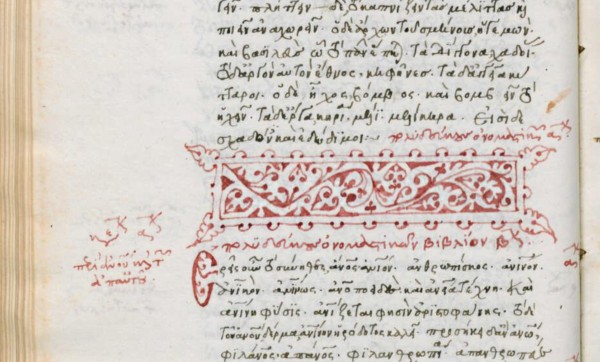
PURA - PURism in Antiquity: theories of language in Greek atticist lexica and their legacy
Researcher: Olga Tribulato, Lenght: 72 months (31/12/2026), Grant: € 1.303.437 (Horizon 2020 - ERC Consolidator Grant)
Linguistic purism emerged during the Roman Empire aiming to protect the Greek language from the 'threat' of multilingualism. Ancient Greek purism has never been studied in a multidisciplinary perspective and remains unknown outside the realm of classics. The EU-funded PURA project will conduct the first global study of this phenomenon. It will focus on the analysis of Atticist lexica, which were composed of scholars who lived in the multilingual environment of the Roman Empire and intended to preserve the Greek language in its 5th-century form. The project combines classics, linguistics, textual philology, codicology and historical lexicography to deliver a global mapping of the purist theories expressed in lexica and produce a conclusive study of Atticism and its legacy.
Project website: PURA

DIGITAL SOLUTIONS FOR SUSTAINABLE AND DISASTER RESILIENT HERITAGE MANAGEMENT - DIGITALIA
Researcher: Lorenzo Calvelli, Lenght: 24 months (30/11/2026), Grant: € 250.000 (Erasmus+ Programme)
The DIGITALIA project addresses the digital transformation of cultural heritage by enhancing the digital readiness, resilience and capacity of vocational educators, students and professionals. Involving partners from Turkey, Italy and Spain, the project offers hands-on training, workshops and a new digital curriculum that aligns cultural heritage education with labour market needs. It provides upskilling and reskilling opportunities for cultural sector staff and university students, preparing them for digital roles in the preservation, management and access of heritage. By employing advanced technologies such as 3D scanning and virtual reality, DIGITALIA fosters creativity and problem-solving skills, particularly in the field of risk management related to natural disasters. It serves as a catalyst for innovation, helping institutions bridge digital skills gaps and adapt to the demands of the rapidly evolving global workforce. It also promotes the digital transformation of cultural heritage and improves employability by providing certifications and practical experience.
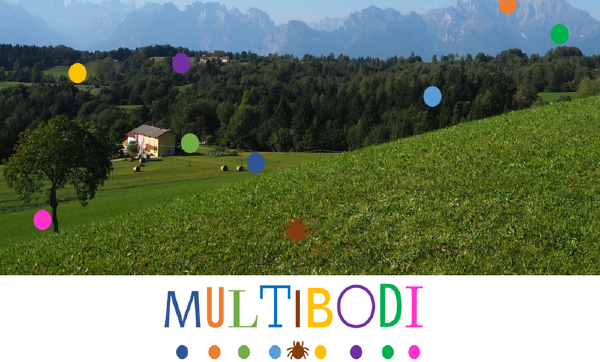
A Multispecies Ethnography of Human-Animal-Environment Assemblages for Tick-Borne Disease Prevention in Italy and Slovenia (MULTIBODI)
Researcher: Deborah Nadal Lenght: 36 months (19/12/2025), Grant: € 263.024,19 (Young Researchers)
In the human population, Lyme disease and tick-borne encephalitis are the two fastest-growing tick-borne diseases, causing mounting concern all over the world, especially in the Northern Hemisphere. Ticks infect wild, domestic and farm animals too, causing a vast range of diseases. So far, the prevention of human tick-borne diseases has mainly focused on individual protective measures – and with limited success. The design of strategies that involve the entire human-animal-environment community, through an integrated One Health approach, has received limited attention with regard to these diseases, while it has already proven effective for many others. MULTIBODI aims at building with local communities an interdisciplinary, intersectoral, ethnography-informed conversation on new modalities of living alongside ticks through different ways of living with animals, woods, fields and pastures in the mountain provinces of Belluno in Italy and Gorenjska in Slovenia.
Censorship and communication in modern Age (XVI-XIX Centuries)
Researcher: Marco Cavarzere, Lenght: 24 months (11/12/2025), Grant: € 38.705 (PRIN2022)
This research aims to investigate models, behaviours and features of violence against women in Rome (VIII century BC–V century AD) through an analysis of the ancient sources, and to identify the historical and cultural superstructures that may have produced or justified the phenomenon of violence against women in Western society from ancient times to present. The female body has been a cultural and symbolic place for the construction of gender identity and relations between sexes, and an entity from which models, norms and behaviours arise. Therefore, this research aims to verify the validity of these premises by looking at the history of Rome which, for Western culture, is the main historical, ideological and symbolic reference from the post-classical age to today. The focus allows us to trace the cultural and anthropological origins of gender asymmetry, to reconstruct long-lasting historical dimensions, to read correctly the cultural superstructures that still persist in today’s Western society.
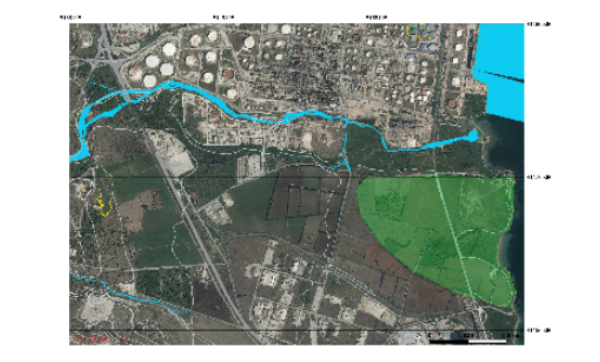
Building and Inhabiting the City in Ancient Sicily (BICAS)
Researcher: Frederic Mege, Lenght: 24 months (30/11/2025), Grant: € 123.264 (COFUND Global at Venice)
The project BICAS proposes to investigate the route of construction stone in two cities of Ancient Sicily, Megara Hyblaia and Selinous, between the 7th and the 1st cent. BCE. The strategies set up by the inhabitants to find and to use this material tell us a great deal about the way these ancient cities have developed. Several types of approaches will fuel the inquiries on extraction, transportation and construction methods, so as to understand the working modes. Secondly, the study of the interconnections between the stone quarries, the transportation routes and the urban space will shed light on the way each city exerted command on its territory. Finally, BICAS will give insights on the socio-political evolutions in the metropolis (Megara) and its colony (Selinous), under the prism of their respective building programmes. Based on innovative tools and cross-disciplinary approach, the project will yield unprecedented information on how the inhabitants of Megara Hyblaia and Selinous concretely constructed their cities.
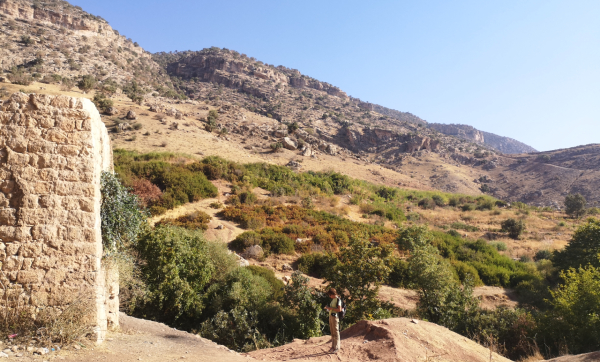
Paesaggi e comunità agro-pastorali dell’alta Mesopotamia: ricostruzione identitaria e protezione di un patrimonio in pericolo (CArE)
Researcher: Cristina Tonghini, Lenght: 29 months (29/11/2025), Grant: € 169.944 (PRIN2022 PNRR)
CArE aims at developing an original, creative, and participatory approach to the protection of the agropastoral cultural heritage of the Upper Mesopotamian piedmont (Iraqi Kurdistan, Dohuk province) through an interdisciplinary dialogue between Archaeology (Near Eastern A., Islamic A., Community A.), Cultural Anthropology, Human Geography and Cultural Heritage Management. The area of the research features a diversified and multi-period archaeological heritage; it constitutes an ideal observatory on the interactions between sedentary and semi-nomadic communities in the past and at present. Experimenting with new methodologies and advanced techniques, CArE aims to record and reconstruct occupation patterns and land use of the piedmont over time, and to identify destruction and threats. At the same time, CArE will engage with the various communities that populate the region today (Yezidi, Muslims, Christians) to assess their relationship with today's territory and to recover, where possible, the memory of their relationship with yesterday's territory. The completion of the project will contribute to the protection and enhancement of a highly threatened and unprotected territory, to the improvement of social cohesion, to the process of peace building, and to memory and identity reclaims for the communities that inhabit it today.
Dizionario dell'italiano accademico: forme e funzioni testuali (DIA)
Researcher: Davide Mastrantonio, Lenght: 24 months (29/11/2025), Grant: € 127.831 (PRIN2022 PNRR)
Academic Italian can be identified as the set of forms and functions that typically occur in formal texts (handbooks, research articles, etc.) transversally to disciplinary fields. In spite of its relevance, academic Italian is still an understudied variety, unlike e.g. academic English. From this perspective, the DIA project ("Dizionario dell'italiano accademico: forme e funzioni testuali") aims to fill a double gap: to start a systematic formal and functional inquiry of the academic variety of Italian based on the analysis of a wide corpus; and to create an open-access digital dictionary that allows the query of academic expressions by forms and functions. The potential recipients of the DIA are first and foremost students and teachers involved in formal writing learning/teaching processes, but the DIA would also be usable by writers outside the school or university settings who are nevertheless increasingly confronted with the need to write clear and fluent formal texts.
Returning Foreign Fighters (ReFF). The Demobilisation of Italian Transnational War Volunteers, 1860s-1970s
Researcher: Elena Bacchin, Lenght: 24 months (29/11/2025), Grant: € 54.650 (PRIN2022 PNRR)
ReFF aims to conduct the first comprehensive study of Italian foreign fighters’ return to the peninsula during the period 1860-1970. Despite military mobilization being primarily driven by national conscription and the nation-state during these decades, transnational war mobilization persisted. Focusing on Liberal Italy, the research unit discusses the trajectories, fates, and legacies of Italian foreign fighters who relocated to a state other than their own with the intention of perpetrating, planning, or participating in acts of war, or receiving military training. In particular, it investigates the actions of Italian foreign fighters who returned to their home country during the period 1861-1914 to understand whether they demobilized or chose new forms of political mobilization. It also analyzes the measures taken by Italian and international authorities to monitor, and possibly contain and repress, their actions.
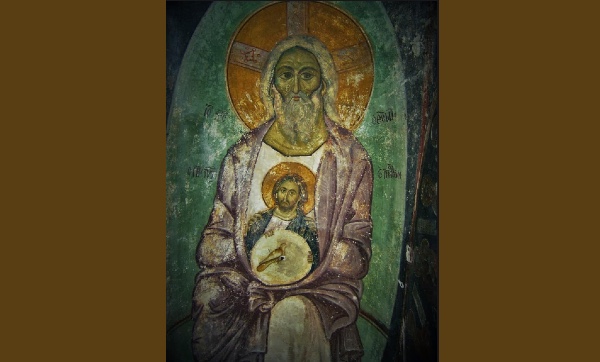
Panoplia Panopliarum - The long twelfth century: the Byzantine age of anti-heretical compilations
Researcher: Alessandra Bucossi, Lenght: 24 months (29/11/2025), Grant: € 118.479 (PRIN2022 PNRR)
The research project examines the geopolitical positioning of the Church and the Byzantine Empire in response to the military and cultural encirclement that Byzantium experienced during the "long 12th century", through the study of the three great compilations against all heresies produced in this period: the Dogmatic Panoply by Euthymios Zigabenos, the Sacred Arsenal by Andronikos Kamateros, and the Dogmatic Panoply (or Treasury of Orthodoxy) by Niketas Choniates. So far these works have been only partially studied and/or published.
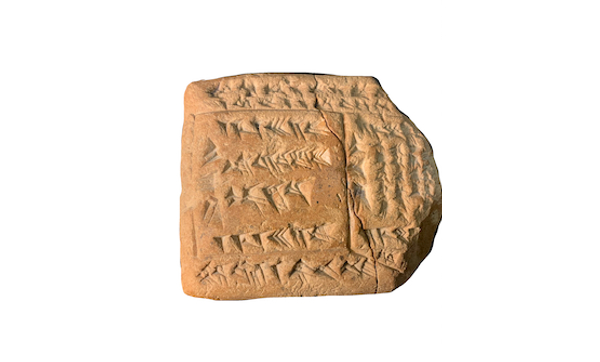
Mapping and Annotating Plots (MAP): the Multimodality of Cadastral Plans in Antiquity (Babylonia and Rome)
Researcher: Paola Coro', Lenght: 24 months (29/11/2025), Grant: € 130.200 (PRIN2022 PNRR)
The project addresses the study of multimodality in cadastral maps in Mesopotamia between the 3rd and 1st mill. BC and in the Roman world between the 1st c. BC and the imperial age. Annotated field maps represent a paradigmatic example of the co-occurence on the same support of texts, in the form of annotations (epigraphs), and images, i.e drawings (schematic maps), in the ancient world. The combination of more than one semiotic mode in meaning-making, communication, and representation is pervasive in our times and according to multimodal theories allow for the "multiplication" of their respective meanings. Despite its prominent role in the contemporary world, the study of multimodality in the documentary corpora from the ancient world is still in its infancy. The aim of MAP is to investigate annotated cadastral plans in the Mesopotamian and Roman world, benefiting from a comparative approach. We will explore annotated maps through the lens of multimodality, whose potential for a better understanding of the mechanisms and procedures underpinning the production of this documentary class and the administrative context whence they stem will be tested here for the first time.
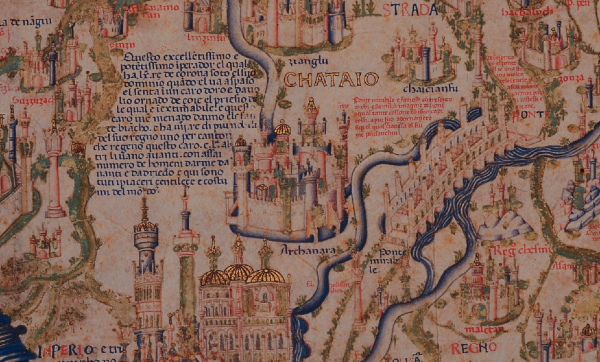
Marco Polo - from Venice to World Literatures (MarVeLs). Textual, linguistic, and socio-cultural factors in the spreading of "Devisement dou monde" through space and time (13th-16th centuries)
Researcher: Eugenio Burgio, Lenght: 24 months (16/10/2025), Grant: € 72.649 (PRIN2022)
The project ‘Marco Polo - from Venice to World Literatures (MarVeLs). Textual, linguistic, and socio-cultural factors in the spreading of ‘Devisement dou monde’ through space and time (13th-16th centuries)’ develops along two scientific lines of action: (1) research on the reception of the text in certain cultural milieux: the circles of clerics, where the ‘Devisement’ circulated in Latin; the European aristocracy (and in particular the French aristocracy); (2) the design and implementation of a digital platform from which it will be possible to consult a critical edition designed for the web, and a universal bibliography on Marco Polo and his book.
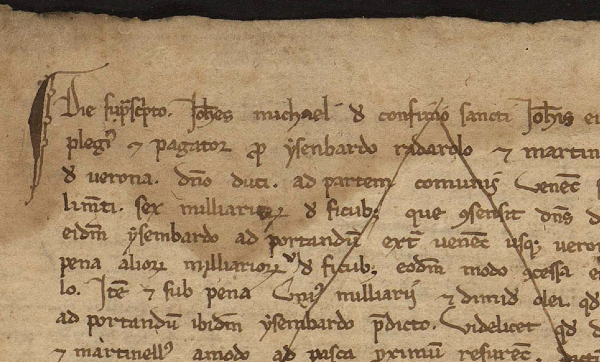
MEDITA - Medieval Latin documentation and Digital Italo-Romance Lexicography. Integrated Resources for the New Historical and Etymological Lexicography
Researcher: Alessio Cotugno, Lenght: 24 months (16/10/2025), Grant: € 66.737(PRIN2022)
The non-literary Medieval Latin lexicon represents a fundamental, yet still largely unexplored, resource for Romance lexicography. Furthermore, the analysis of Medieval non-literary documentation in Latin is essential for the reconstruction of language levels that have played a central role in the formation and in the elaboration of the Romance languages. The main aim of the MEDITA project is the enhancement of this extraordinary resource through a series of integrated activities related to the development of a knowledge base of non-literary texts from the Italian area. This knowledge base will be searchable through the Digital Library MED.ITA. The project runs in close connection with the Dizionario Storico Etimologico Napoletano, the Vocabolario Etimologico Veneziano and the Tesoro della Lingua Italiana delle Origini, and support and integrate the development of these initiatives, providing a textual basis of Latin texts complementary to the earliest Romance texts.
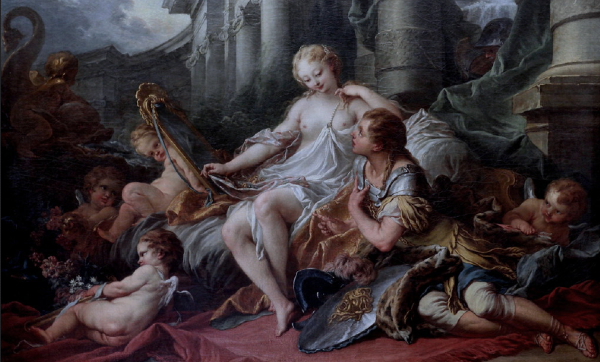
Obscene Freedom. Libertinism and Radical Enlightenment in Contemporary Fiction and Imagery
Researcher: Domenico Cangiano, Lenght: 24 months (16/10/2025), Grant: € 60.555 (PRIN2022 PNRR)
The project is divided into three main lines of enquiry. First, it considers the occurrences of the word and the figure of the “libertine” in contemporary literature and imagery, mapping the presence of the eighteenth-century protest culture in a vast, comparative corpus of twentieth and twenty-first century texts and films, paying particular attention to the most radical and ambivalent positions that have emerged in the last thirty years. Second, it investigates the specifically theoretical aspects, by defining the cultural trajectories that led since the 1990s to the so-called Ethical Turn, and at the same time by retracing the conceptual guidelines inherited from the heterodox culture of the Old Regime: the libertas scribendi, the antagonistic counter-discourse and the anthropological pessimism. Finally, by studying the reception of Libertinism and of radical Enlightenment against the backdrop of today’s majority critical orientations, which reject their intellectual tradition, the aim is to investigate contemporary literature (and in particular the genre of the novel) in a previously unexplored way: the relationship between libertine topics and the Ethical Turn.
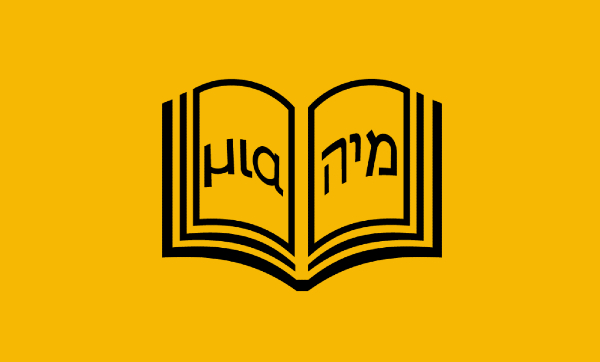
Manuscripta Italica Allographica (MIA). Italo-Romance Texts Written in non-Latin Characters from the Middle Ages to Modern Times
Researcher: Davide Mastrantonio, Lenght: 24 months (16/10/2025), Grant: € 42.592 (PRIN2022)
The project Manuscripta Italica Allographica (MIA) is devoted to the phenomenon of allography (i.e. the practice of writing one language in the script of another language) within the Italo-Romance context. MIA will envisage the creation of a digital open-access descriptive catalogue of all allographic manuscript texts written in Italo-Romance, providing for document a detailed description. Furthermore, a digital edition of a selection of representative texts both in Greek and in Hebrew alphabets will be provided. The edition of each text will be checked on the original manuscript and supplied with both a transliteration and an interpretative transcription. All texts will be encoded and made searchable. The repository will also host the first born-digital edition of a Greek-Romance text, the unpublished shipbuilding manual from the manuscript Oxford, Bodleian Library, Laud Gr. 23 (12 folios). MIA will be a significant contribution to Italian philology and historical linguistics.
INTEGRATION_INTEllectual miGRATION: circulation of philosophical books and ideas around the ancient Mediterranean through the evidence of Graeco-Roman papyri
Researcher: Holger Marc Essler, Lenght: 24 months (16/10/2025), Grant: € 42.132 (PRIN2022)
INTEGRATION aims at enriching our knowledge of Ancient Greek and Roman philosophical thought through the evidence provided by Greek and Latin papyri. It exploits and fosters the work produced over the last century on philosophical papyri, by joining the efforts of two different leading research groups, promoted respectively by the Corpus dei Papiri Filosofici (CPF) and the Centro Internazionale per lo Studio dei Papiri Ercolanesi (CISPE). By investigating Greek and Latin philosophical papyri which are still unpublished or worthy of an updated study, INTEGRATION aims not only to advance edition and digitization of texts but also to contextualize them in a wider frame and highlight their relationship with other texts. This task will be accomplished through (a) new editions of (published and unpublished) philosophical papyri and their digitization; (b) related studies; (c) a database that will provide texts, translations, metadata, cross-references and dynamic maps, which will help to put in context the single pieces of evidence and shed light on their mutual relationship.
Tradition Processing (TRA.PRO). Forms and patterns in the transmission and tradition of the Book of the Dead
Researcher: Emanuele Marcello Ciampini, Lenght: 24 months (27/9/2025), Grant: € 106.672 (PRIN2022)
Despite the rich bibliography and the projects planned on the Book of the Dead, we must stress the lack of studies concerning a historical approach to the corpus: the deconstruction of the chapters in units of sense with the variants due to the historical evolution of the tradition, a complete lexicographical study, a study on the tradition(s), and a historical approach to the language of the corpus. The project intends to deal with the manuscripts in their entirety, making use of a group of sources from the Turin Egyptian Museum (from the Middle Kingdom until the Greco-Roman period), which for the breadth, scripts, typologies and richness of the sources makes it possible to have a representative and optimal sample of the corpus. This approach on sources, text and philological aspects, is a fundamental step towards a more organic profile of the text in all its parts (philological, linguistic, graphic, material). The joint developments of the project will be framed in a wide program of regular integration between the two project units. With the study of the selected sources, we can achieve the following results: - Edition of the manuscripts with the deconstruction of the single chapters in units of sense. - Digital platform for lexicographical and grammatical studies, with a specific historical approach to the language of the corpus. (historical dictionary). This platform is conceived to become a reference tool suitable to further text input thanks to his evolutive nature. Beside the scientific profile of the project, the proposal aims to stress the importance of the results for the approach of a wide audience to the textual tradition: the presence of several Book of the Dead manuscripts in Italian Museums will ensure a fundamental support for the ‘post-project’ creation of a visitor’s path to the Egyptian manuscripts as part of a “public archaeology”.
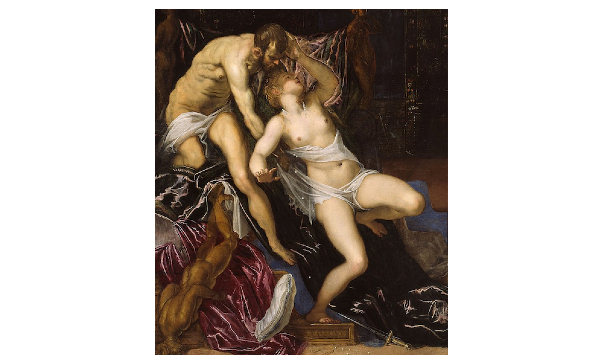
#EtiamEgo. Violence against women in ancient Rome: historical perspectives and symbolic constructions
Researcher: Francesca Rohr, Lenght: 24 months (27/9/2025), Grant: € 55.678 (PRIN2022)
This research aims to investigate models, behaviours and features of violence against women in Rome (VIII century BC–V century AD) through an analysis of the ancient sources, and to identify the historical and cultural superstructures that may have produced or justified the phenomenon of violence against women in Western society from ancient times to present. The female body has been a cultural and symbolic place for the construction of gender identity and relations between sexes, and an entity from which models, norms and behaviours arise. Therefore, this research aims to verify the validity of these premises by looking at the history of Rome which, for Western culture, is the main historical, ideological and symbolic reference from the post-classical age to today. The focus allows us to trace the cultural and anthropological origins of gender asymmetry, to reconstruct long-lasting historical dimensions, to read correctly the cultural superstructures that still persist in today’s Western society.
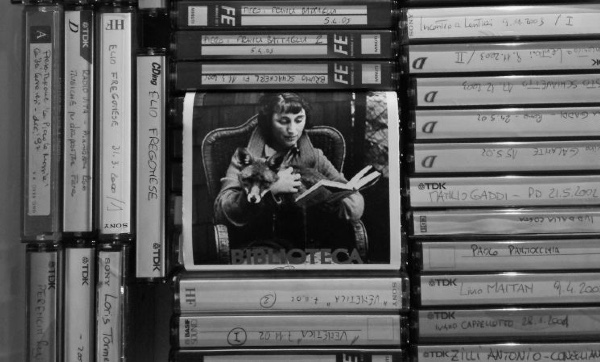
ROADS - Roads to Oral Archives Development and Sustainability
Researcher: Alessandro Casellato, Lenght: 24 months (11/12/2025), Grant: € 38. 608 (PRIN2022 PNRR)
ROADS deals with oral archives produced by academic researchers in oral history and linguistics. It fosters mutual cooperation between digital humanities, engineering and information technology. It envisages a framework (under the CLARIN-IT umbrella) capable of ensuring long-term preservation, security, standardisation, compliance with ethical principles and legal issues, and sustainability, according to the FAIR principles. The objectives of ROADS are the following: to retrieve from oblivion analogue/digital oral archives produced in the last 50 years by academic research; to support a national infrastructure for Italian oral archives, in compliance with the CLARIN standards; to safeguard an important research audio archive; to train professionals and a new generation of researchers.
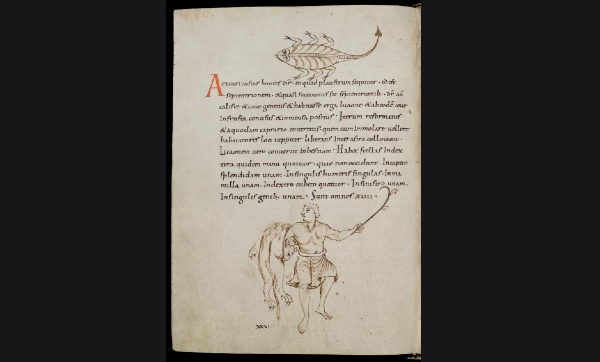
LALALEXiT. Late Latin Lexicon in Transition
Researcher: Martina Chiara Venuti, Lenght: 24 months (16/10/2025), Grant: € 112.611 (PRIN 2022)
Nationalisms and emerging ideologies, migrations of peoples, major cultural and political upheavals: Late Antiquity in Latin America was an era of profound changes that shaped subsequent cultural history. But what words did contemporary literary texts use to describe this ongoing transition? Which expressions, in prose and poetry, were entrusted with the task of representing - and interpreting - the change? How fortunate were these words, which often became part of the literary production mechanism of the following epochs and of our heritage of expressions, figures, metaphors, contributing to our cultural identity and our way of thinking and thinking about ourselves? LaLexiT proposes the first "Latin lexicon of the historical transition in Late Antiquity", a new digital tool constructed from a well-identified selection of texts in prose and poetry, from the period between the 3rd and 7th centuries AD.
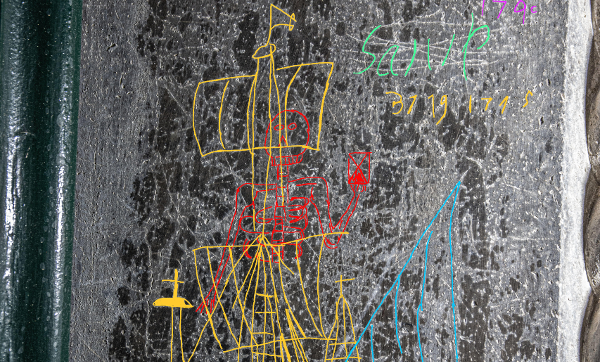
Venezia Libro Aperto (acronym: VeLA)
Researcher: Flavia De Rubeis, Lenght: 24 months (16/10/2025), Grant: € 103.884 (PRIN 2022)
Created in 2019, the VeLA project, Venezia Libro Aperto (Venice Open Book), aims to collect, study and disseminate all the graffiti in the city of Venice and its lagoon. Once they have been recorded, studied and surveyed, they will be available on the dedicated website, Velave.it. The Vela project is divided into 3 segments: VeLA Urbana, examines, catalogues and studies all the graffiti in the city and lagoon. VeLA Monastica, dedicated to the areas around the monasteries. VeLA Palazzo Ducale, PRIN funding and collaboration of IUAV, consists of the census, study and survey of all graffiti inside and outside the Doge's Palace. With the Vela Palazzo Ducale project particular and selected graffiti will also be made accessible in situ through Beacon technology. Beacon technology will in fact be able to communicate the contents of the graffiti with narrative voices on individual devices.
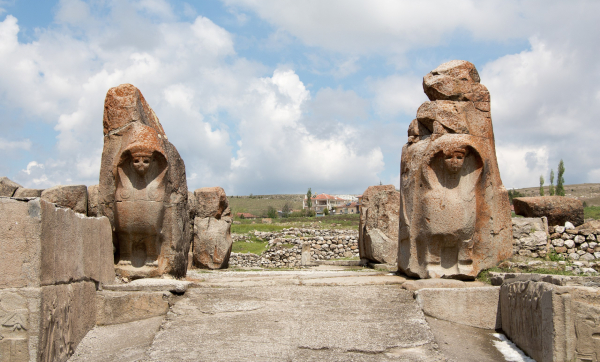
The art of the stage in Bronze Age Anatolia. Reconstructing Hittite festivals using texts, images and comparative cultural anthropological evidence
Researcher: Alessandra Gilibert, Lenght: 24 months (16/10/2025), Grant: € 87.268 (PRIN 2022)
Hittite Anatolia (1700-1200 BC) has the largest corpus of cult festivals in antiquity, reflected in texts and archaeology. However, these sources lack systematic comparison. The project 'The Art of the Stage in Bronze Age Anatolia' (2023-2025) integrates textual and visual evidence to explore Hittite festivals as 'total social facts.' Using a multiproxy approach, it includes parallel analysis of texts (the "Great Festival of Arinna") and artifacts (Alacahöyük's reliefs), methodological development for their combined study, and interdisciplinary reconstruction of festivals. Planned outputs include critical editions of Arinna's festivals, reappraisal of Alacahöyük's Sphinx Gate, and an open digital archive. Outreach efforts involve educational modules and collaboration with museums and educational organizations.
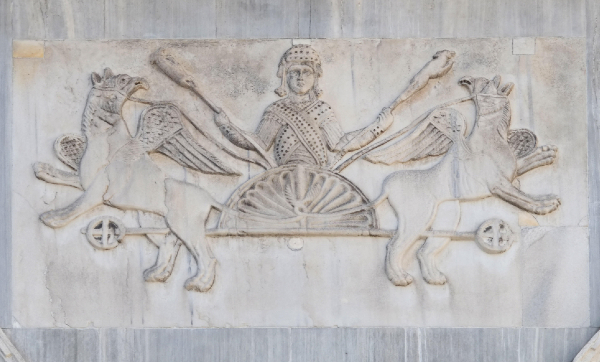
Diplomacy, Rhetoric and Pragmatism. A Study on Greek Acts and Privileges issued by the Byzantine Emperors to the Italian Mercantile Cities (AD 1100-1400)
Researcher: Antonio Rigo, Lenght: 24 months (16/10/2025), Grant: € 64.400 (PRIN 2022)
The project aims at investigating an aspect of Byzantine diplomacy consisting of thirty-three Greek acts issued by the Byzantine emperors in favour of the Italian cities. The venetian unity deal with the printed edition of the deeds granted by the Byzantine emperors to Venice, along with the relations between Byzantium and the lagoon city, and will edit, translate, and comment on the privileges issued in favour of Venice from 1265 to 1418. These documents are presently available to scholars only in old nineteenth-century editions, which offer neither a translation nor any support for their understanding. Moreover, they have so far been studied mostly from an economic perspective or for the ‘positive’ information they provide on political history. The present project aims at studying this legacy under its aspect of cultural and social memory as well as at providing a fresh edition of it, with translation and commentary. The value of the acts as historical source mirroring the identity traits of the political powers involved in the negotiation activity will be emphasised. The proposal aims at raising awareness in the general public of the importance of this Greek medieval legacy for the history of western Europe as well as the importance of state archives in preserving and enhancing our cultural heritage.
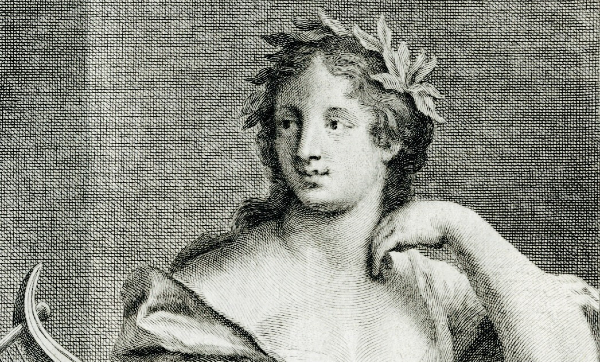
PoetRi. Female poetry of the Renaissance
Researcher: Elisa Curti, Lenght: 24 months (16/10/2025), Grant: € 41.075 (PRIN 2022)
The project aims to reconstruct the production of a selected number of Renaissance female poets, and to provide a historical, cultural and literary contextualization. A digital Atlas (PoetRi) will be created, easily accessible, with the principal goal of disseminating the results of the research to a wide audience of readers. The Venetian unit, directed by Elisa Curti and Veronica Andreani, will focus on female poetry from the Veneto area, paying particular attention to the figure of Gaspara Stampa (1523-1554). A new annotated edition of her Rime will be prepared, which will contextualize her production within the vast phenomenon of Renaissance Petrarchism, highlithing the relationship of the author with the essential models of Petrarch and Bembo, with authoritative models of female-authored poetry such as Veronica Gambara and Vittoria Colonna, and with the lively contemporary milieu of the Petrarchist poets active in Venice.
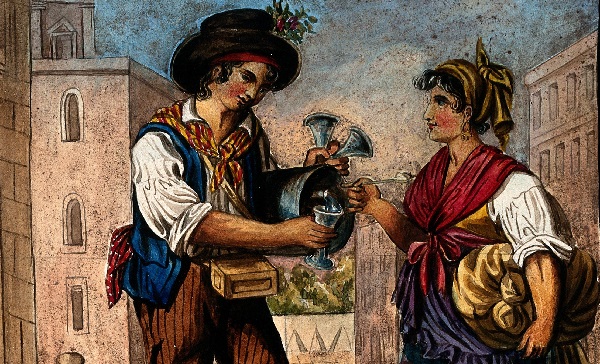
Water Cultures - The Water Cultures of Italy (1500-1900)
Researcher: David Gentilcore, Lenght: 72 months (until 30 September 2025), Grant: € 2,44 milions (Horizon 2020 - ERC Advanced Grant)
The project, funded by an ERC Advanced Grant, offers a new way of writing history, with water placed in the center. The concept of "Water Cultures" is based on the synergistic interweaving of five lines of research: the symbolic beliefs and practices associated with water; the circulation and evolution of knowledge related to water and the diseases associated with it; the management of the hydraulic systems and water resources of the big cities; the hydraulic landscape of rural areas; professions and professions related to water and its use. Italy was chosen as a "case study", for the richness of its archives and the social, political and geographical variety it offers, and a long-term approach to better identify elements of continuity and change.
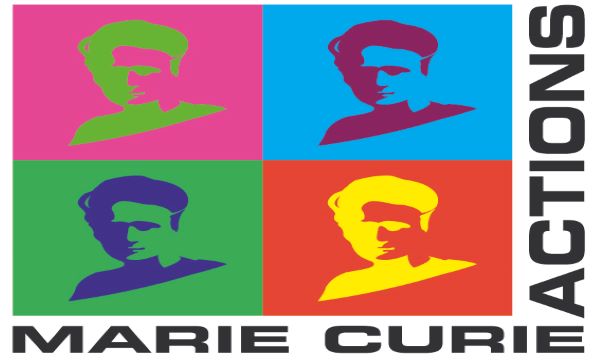
PERLY - Performing Lyric, East and West: A Comparative Study of the Ancient Greek and Japanese Traditions
Researcher: Ettore Cingano (fellow Vanessa Casato); Length: 36 months (until 31/10/2025), Grant: € 266.318,4 (Horizon Europe Marie-Sklodowska Curie Actions - Postdoctoral Fellowship)
This project will study side by side the fragmentary poetry of ancient Greek lyric and the still living performance tradition of Japanese Nō poetry. Greek lyric was originally composed for performance but has been purely textual for almost two and a half millennia. Japanese Nō on the other hand still has a thriving performance tradition, and it shares with the Greek material some key lyrical aspects. Vanessa Cazzato, who has thus far specialized in Greek lyric poetry, will spend two years in Japan studying the Nō and Nō-influenced Japanese performance tradition before returning to Venice for a year to write on what this can tell us about Greek lyric specifically as a performance genre. She will be hosted at Tokyo University under the supervision of Prof. Hyuga Taro and at Ca’ Foscari under the primary supervision of Prof. Ettore Cingano.
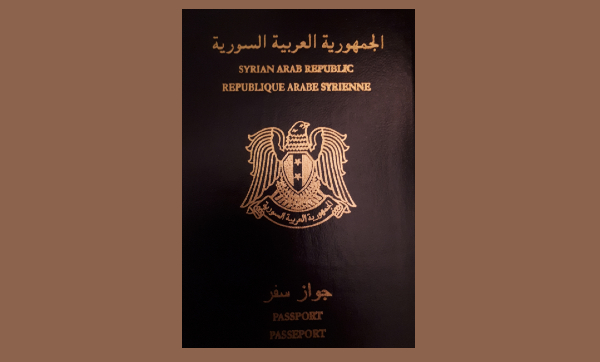
ARCHIVWAR – Archives in Times of War: Scattered Families and Vanishing Past in Contemporary Syria
Researcher: Francesco Vacchiano (fellow: Veronica Ferreri), Lenght: 36 months (30/09/2025), Grant: € 256.442,88 (HORIZON-MSCA-2021 - Postdoctoral Fellowship)
In times of war, Syrian state archives have fallen victim to destruction and plundering. Simultaneously, Syrians in the diaspora have been saving and retrieving copies of mundane legal documents originally stored in these state repositories. ARCHIVWAR examines these documents and their centrality in preserving a connection to family members in Syria and in the diaspora. Combining ethnographic methods with oral history research, the project rethinks the archive as a form of care amongst Syrian transnational families based in Berlin. Through this re-reading the archive, the project ultimately aims to shed a light on a different political history of the archive partly disarticulated from state and (post)colonial forms of knowledge-power. Veronica Ferreri will conduct her research at University of Waterloo (Canada), under the supervision of prof. Secil Dagtas, and at the Department of Humanities of Ca’ Foscari, under the supervision of dr. Francesco Vacchiano.
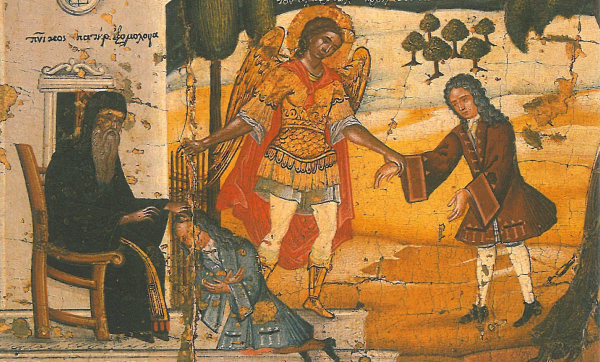
Borderland Religiosity in the Eastern Mediterranean: Greeks and Latins Crafting Local Christian Orthodoxies. The Cases of Venetian Corfu and Ottoman Naxos, 17th-early 19th centuries - CraftingOrthodoxies
Researcher: Daphne Lappa, Lenght: 24 months (30/09/2025), Grant: € 123.264 (COFUND Global at Venice)
What did it mean to be Orthodox or Catholic in the premodern world? Were these categories internally uniform across space and time? In other words, was it one and the same thing to be Orthodox in Ottoman Istanbul and Orthodox in the Venetian Maritime State? Similarly, was it one and the same thing to be Catholic in Rome and Catholic in the Ottoman Aegean? Or were these configurations contingent, that is, locally determined and rooted in concrete political and cultural contexts? To address these questions, the project examines the religious practices of Orthodox and Catholic Christians in the Eastern Mediterranean, bringing together two case studies: Venetian Corfu and Ottoman Naxos between the 17th and the early 19th centuries. Endorsing the idea of the Eastern Mediterranean as a borderland where cultures meet and clash, the project argues that the interaction between Orthodox and Catholics in these territories transformed their religious practices: it gave rise to a distinctive borderland religiosity that featured new, mixed, local versions of religious orthodoxies and orthopraxies.

Political Repression and International SOlidarity Networks (PRISON).The Transnational Mobilization on Behalf of Political Prisoners in the Interwar Period (1918-1939 ca.)
Researcher: Elena Bacchin, Lenght: 24 months (27/9/2025), Grant: € 144.475 (PRIN2022)
PRISON si concentra sulla storia della mobilitazione e della solidarietà transnazionale a favore dei prigionieri politici stranieri nel periodo tra le due guerre. Sostiene che i detenuti politici fossero attori attivi e un argomento di preoccupazione per la comunità internazionale, contribuendo a plasmare il dibattito politico, la definizione degli strumenti legali e una specifica forma di umanitarismo. Nel contesto dell'internazionalismo di inizio Novecento, associazioni umanitarie e comitati politici intervenivano a favore dei prigionieri politici stranieri. PRISON mette in discussione l'idea che i detenuti politici siano diventati una preoccupazione internazionale solo dopo la Seconda Guerra Mondiale; inserisce il crimine politico nei dibattiti sull'umanitarismo; contribuisce a una nuova storia della mobilitazione transnazionale nel periodo interbellico; studia i dibattiti sulla definizione del crimine politico; collega le storie delle organizzazioni internazionali a dibattiti politici più ampi su politica, giustizia globale e il valore della vita umana
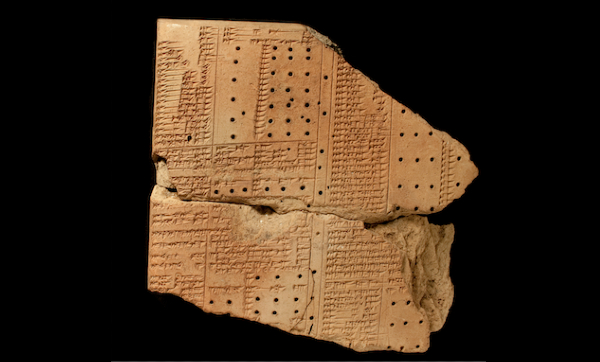
Exploring scribal minds: the structural and visual organization of knowledge in Mesopotamian archives and libraries
Researcher: Paola Coro', Lenght: 24 months (27/9/2025), Grant: € 95.000 (PRIN 2022)
Il progetto si occupa dell'organizzazione strutturale e visiva della conoscenza come riflessa nei documenti scritti dell'antica Mesopotamia che fanno parte di archivi istituzionali e biblioteche, tra il II e il I millennio a.C. I casi studio saranno i documenti d’archivio dalla Babilonia cassita (Torino) e i testi letterari dalla cd. Biblioteca di Assurbanipal (Venezia). La ricerca muove dalla premessa che l'aspetto fisico di un manoscritto sia cruciale per determinarne l'efficacia come mezzo di trasmissione delle informazioni, facilitando la comprensibilità e la fruizione del testo attraverso l'organizzazione visiva del suo contenuto. Affrontando casi studio rappresentativi delle due principali aree di attività degli scribi, il progetto mira a esplorare come e in che misura l'aspetto fisico dei testi cuneiformi abbia incarnato i processi mentali dei loro autori e risposto alle loro esigenze intellettuali così come a quelle di ulteriori possibili utenti. In questo modo, la ricerca contribuirà a mettere in luce le complesse dinamiche degli ambienti sociali, economici e culturali in cui la scrittura svolge un ruolo centrale nella formazione e nell'organizzazione della conoscenza.
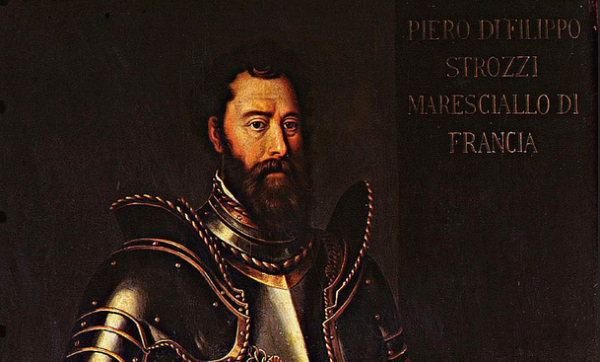
“Italian Lily”. People and Books from Italy to France in the Sixteenth Century
Researcher: Stefano Dall'Aglio, Lenght: 24 months (27/9/2025), Grant: € 45.050 (PRIN 2022)
Through an interdisciplinary approach comprising historians, historians of books and legal historians, the project will study the circulation of people and texts from Italy to France in the XVI century, a historical period in which political, diplomatic and military affairs between the French monarchy and the Italian states were closely intertwined. The project is based on the idea that the early modern age, despite the rise of national monarchies and churches, was a period marked by an extraordinary increase of cultural circulation among different countries in Europe. The project will create two databases for historical works and legal works by Italian authors that were published in France in the Cinquecento either in the original Italian or in French translation. Finally, the project will create a digital map of the places of destination of Italian exiles in France which will trace the routes of the political exiles in order to understand the flows from Italy towards France and the main lines of movement within France.
Corpus of the Medieval and Renaissance Scribes in Italy (ScribIt)
Researcher: Paolo Eleuteri, Lenght: 24 months (27/9/2025), Grant: € 73.609 (PRIN 2022)
The online database ScribIt aims at making available the identity of the scribes, whether real or conventional, working in Italy between the 13th and the 15th century; they will be linked to the list of the manuscripts signed by or attributed to them. The database will also include the names of non-Italian scribes working in Italy and Italian scholars writing in Greek. The database will also include the anonymous hands which have been identified in at least two manuscripts. For each scribe bibliographical information and a link to digital images will be provided. The data will be inserted in Nuova Biblioteca Manoscritta (www.nuovabibliotecamanoscritta.it).
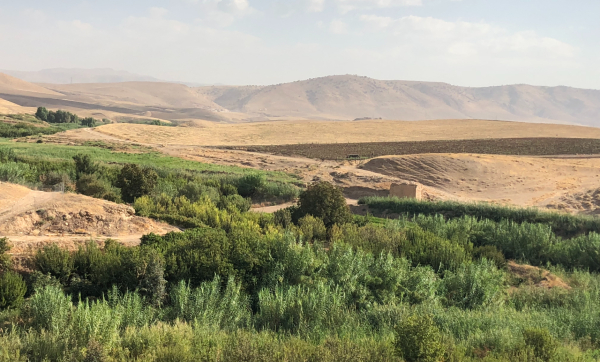
Near Eastern Empires at Work (NEEW). An archaeological approach to the study of empires, their organisation and impact on local societies and landscapes in northern Iraq
Researcher: Cristina Tonghini, Lenght: 24 months (27/09/2025), Grant: € 85.509(PRIN 2022)
Archaeology, through the study of material sources, offers a privileged perspective to measure the impact on territory and society of the great empires of the past. Starting from this assumption, the NEEW project aims to examine an area characterised by a rich agricultural productivity, often increased by the investment programmes implemented by the various political entities that acquired control over it, overlooked by archaeological research for a long time: the agricultural hinterland controlled by Nineveh and, later, Mosul. Based on case studies illustrating Middle and Neo-Assyrian, Abbasid and Ottoman imperial traditions, the NEEW project investigates the ways and practices through which empires took control of territories and shaped their rural landscapes and societies. The Ca' Foscari University Unit, directed by C. Tonghini, will focus on the transformation generated by the creation of the Caliphate (7th-10th century) and, subsequently, the Ottoman Empire (16th- early 20th century). A privileged observatory on this reality is the site of Tell Zeyd, where a Ca’ Foscari research project is being carried out since 2022.
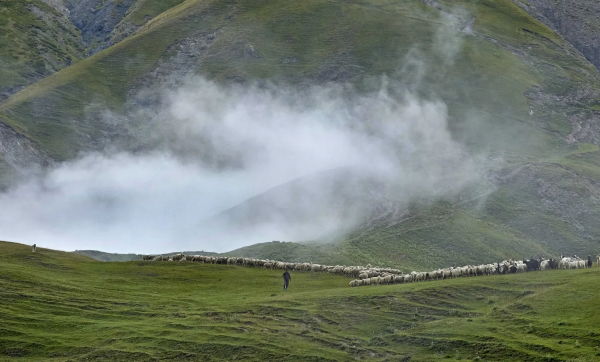
EStimating PREhistoric MObility in the mountainous regions of the Near East: animal management, raw materials procurement, technology and settlement patterns as indicators of movement and interconnections
Researcher: Elena Rova, Lenght: 24 months (27/09/2025), Grant: € 88.835 (PRIN 2022)
EsPreMo aims to define the long-term evolution of mobility and interconnections between the human groups located in the highlands and the inter-mountain valleys between the east-Anatolian plateau and the Greater Caucasus range. Between the 5th and the late 2nd millennium BC these regions were the scene of migrations and diasporas, but especially of economic mobility and transfer of raw materials and goods and represented areas of supply of important resources for technology and crafts. The project addresses the dynamic relation between the population residing in the fertile plains of the main rivers and the groups frequenting the higher locations through the integrated analysis of selected indicators considered as proxies for mobility patterns and itineraries (faunal remains, deposits of metals and obsidian and artefacts made of these materials) with the contribution of different scientific disciplines (archaeology, bioarchaeology, chemistry, archaeometallurgy, cultural anthropology).
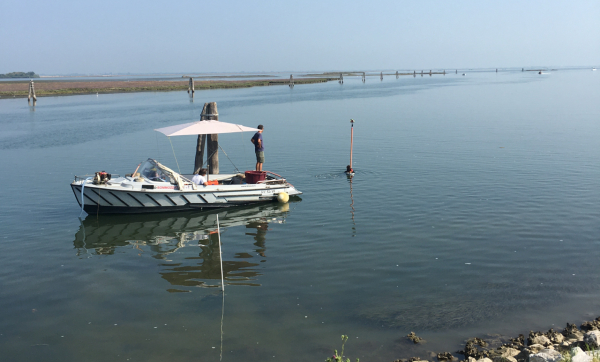
The lagoon of Venice in Antiquity. Settlement dynamics, adaptive behaviours, paleoenvironmental reconstructions
Researcher: Carlo Beltrame, Lenght: 24 months (27/09/2025), Grant: € 79.795 (PRIN 2022)
General aim of the project is the reconstruction of the dynamics of the Roman settlements in the lagoon of Venice, taking in full account the paramount environmental changes that characterize lagoon systems. At the same time, it wants to address the relationship between environmental changes and cultural response by an integrated approach including historical and archaeological methods and palaeoecological/paleoclimatic methods. In particular, the project wants to investigate the capacity of adaptation of human activities in an apparently hostile place and, on the contrary, the ability of exploitation of the environment, also through a comparison with other lagoons. The heart of the topic is the relationship of these communities with water and wetlands. Indeed, the lagoon of Venice and possibly other lagoons may have been used by the Romans as resources of high economic value, as well as strategic sites for the location of seaports.
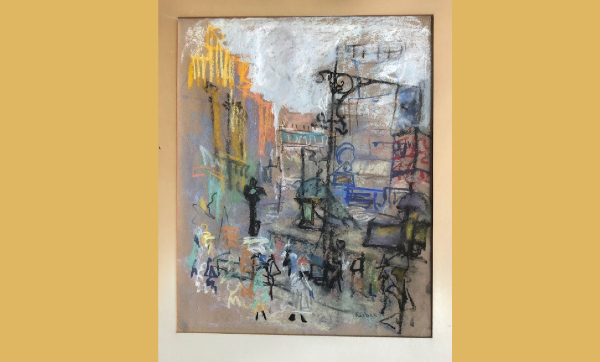
POYESIS - Perspectives on Yiddish Cultural Evolution and Its Legacy: Visual Arts, Theatre, and Songwriting Between Assimilation and Identity. A Case Study
Researcher: Stefania Portinari (fellow Fabio Fantuzzi), Lenght: 31 months (31/08/2025), Grant: € 265.099,2 (H2021 Marie-Sklodowska Curie Actions - Postdoctoral Fellowship)
The EU-funded Marie Sklodowska-Curie project POYESIS studies the work and teachings of American Jewish artist Norman Raeben and his influence on various prominent artists, including, among others, Stella Adler, Isador Steinberg, Bob Dylan, and Roz Jacobs. The research aims to provide the first art catalog of the artist's works, an international conference, and a retrospective painting exhibition, and offer a comprehensive analysis of his creative production and art theories and new information about the works of his most influential students and collaborators. By analyzing his figure as a case study, the project will open new perspectives on the evolution of Yiddish culture and art in New York in the 20th century.
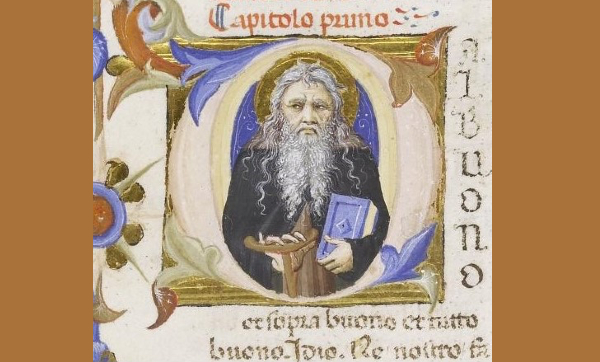
TRANSMAR - Angelo Clareno (ca. 1260-1337) as a marginal Translator of the Greek Fathers : Circulation of Texts and People in Europe before Humanism
Researcher: Antonio Montefusco (fellow Armelle Christine Marie Le Huërou), Lenght: 24 months (14/5/2025), Grant: € 188.590,08 (PRIN 2022)
The project aims to challenge the widespread prejudice of the medieval ignorance of Greek. It focuses on the emblematic figure of the dissident Franciscan friar Angelo Clareno and on several Latin translations of Greek patristic texts, some of which are undoubtedly his own (Climacus, Nyssa Basil, Macarius, Chrysostom), others attributed to him (Maximus the Confessor, Athanasius, Gregory of Nyssa). Translated for the first time into Latin, some of these works have been widely disseminated. One of his earliest translations (before 1300), John Climacus Scala Paradisi, is attested today by more than a hundred manuscript witnesses and had a profound and lasting influence on Western Christian spirituality in the late Middle Ages. The purpose is to establish by which paths and under which circumstances these Eastern texts were introduced into West and to measure their religious, social and cultural influence, particularly by reconstructing the manuscript traditions of these translations.
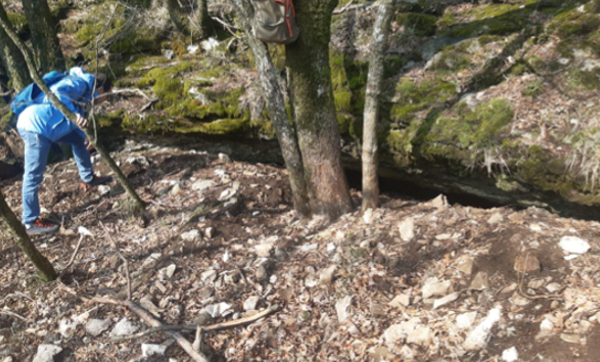
Recent Prehistory of the Karst
Researcher: Federico Bernardini, Lenght: 24 months (4/5/2025), Grant: € 12.500 (Fondo Scavi Ateneo + Fondi di Dipartimento)
By excavating a cave site in the province of Trieste, the project aims to deepen understanding of the recent prehistory in this area, with a specific focus on the Neolithic and Copper Age. Many aspects of cultural development in the Karst and neighbouring areas between the end of the 6th and the end of the 3rd millennium BC are still debated. These aspects include the neolithization process, mature Neolithic phases after the Vlaška Group, as well as the chronology and definition of cultural aspects during the Copper Age, among others. The planned investigations also aim to verify recent hypotheses about exchange systems and cultural development in Caput Adriae by studying new materials from a reliable stratigraphic context. These hypotheses are mainly based on interdisciplinary studies of lithic and ceramic artefacts from Italy, Slovenia, and Croatia.
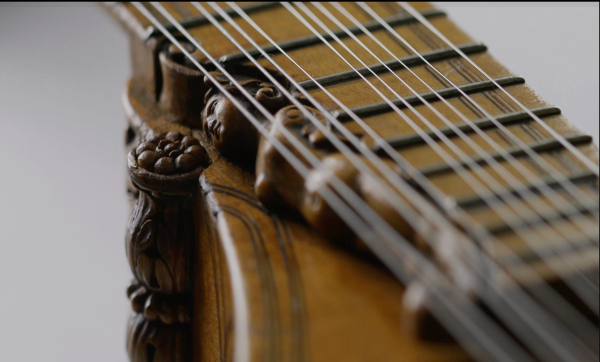
MIRe - Monstruous and Marvellous Musical Instruments: Digital Humanities and Renaissance Music Heritage
Researcher: Emanuela Vai, Research Institute for Digital and Cultural Heritage, Lenght: 24 months (31/01/2025), Grant: € 135.264 (H2020 EU Commission COFUND ‘Global Challenges’)
MIRe is an interdisciplinary, international and cross-sector research project that combines digital humanities tools (3D photogrammetry, AR/VR) with material and archival analysis to examine the production, ornamentation, circulation, collection and display of early modern musical instruments. Musical instruments of the Italian Renaissance period were often elaborately decorated, featuring arabesque patterns, emblems, and carvings of fantastic, monstruous and marvellous creatures. Yet these decorative aspects have eluded critical attention. Combining 3D photogrammetry and historical archival analysis, this digital humanities project analyses musical instrument decoration and ornamentation and examines what these decorative elements say about the visual, material, and (non-)auditory dimensions of early modern music cultures. MIRe explores what these fantastic visual and material features say about the role that musical objects played in Renaissance social worlds.
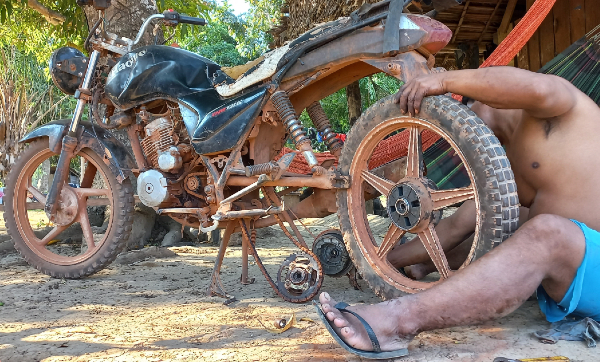
MOTOBOOM - The Current Impact of Motorcycle Motorisation on Amazonian Indigenous Peoples
Researcher: Valentina Bonifacio (fellow Diego Villar), Lenght: 24 months (31/01/2025), Grant: € 188590,08 (H2021 Marie-Sklodowska Curie Actions - Postdoctoral Fellowship)
During the last century, the indigenous South American Lowlands have been colonized by steamboats, railways, trucks, chainsaws, fire-weapons and electric generators introduced by missionaries, extractive industries, armies, development projects, and NGOs. However, research has largely neglected this mechanical colonisation of indigenous life. Aiming at understanding social change, some authors have indeed dealt with some of the new materialities that model everyday experience: t-shirts, outboard motors, solar panels, and cell phones. Nevertheless, there are almost no research on the current tide of motorcycles that during the last few decades altered dramatically the interethnic landscape with social, economic and environmental repercussions that are reshaping indigenous reality. The goal of Motoboom is to develop an interdisciplinary analysis of motorcycle dissemination among the indigenous peoples of Bolivian Amazonia, and to achieve practical impact regarding public policies on road safety and prevention of accidents in marginal contexts.
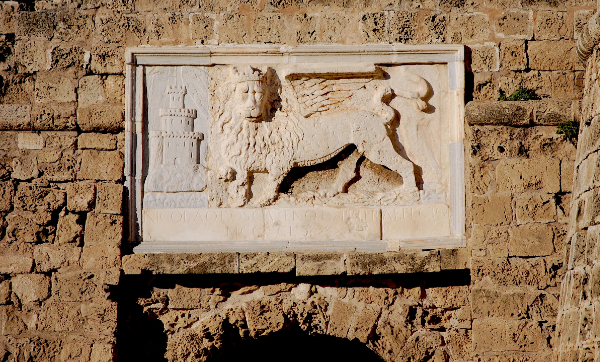
La lettera e il leone in Oriente. L'affermazione del Serenissimo potere nell'isola di Cipro attraverso l'epigrafia pubblica
Researcher: Lorenzo Calvelli, Lenght: 24 months (24/10/2024), Grant: € 15.000 (Call for the submission of applications for grants for projects aimed at the recovery, conservation, and enhancement of the cultural heritage dating back to the Republic of Venice in Istria, Dalmatia, and the Mediterranean area - Regional Law of September 25, 2019, no. 39.)
«La Lettera e il Leone» is a project on written communication and epigraphic cultures produced during the Venetian rule in Cyprus (1474-1571). The research is supported by the Veneto Region [ITA] and include among its strategic partners the Cyprus Institute, Ateneo Veneto, the Embassy of Italy in Nicosia, Società Dante Alighieri and Ayios Epiphanios Academy.
Throughout the Stato da mar of the Serenissima, the so-called scritture esposte (literally, writings for public display) played a crucial role in the Venetian authorities' agenda to convey political and ideological messages. In Cyprus, monumental inscriptions were set in public, military and religious buildings. These inscriptions, written in Latin using the Humanistic capital script, were strategically located to showcase Venice's power and control over the island, as well as to emphasise its political identity.
The project has created the first Open Access platform dedicated to Venetian Renaissance epigraphy. This innovative tool allows for the visualisation of a georeferenced map, along with digital cataloguing and 3D reproductions of the inscriptions.
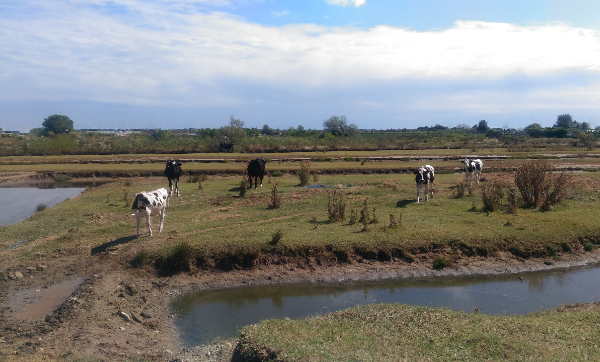
Integrating Terrestrial and Aquatic Archaeozoological Studies: Venice and the northern Adriatic lagoons between Antiquity and the Early Middle Ages
Researcher: Sauro Gelichi (fellow Mauro Rizzetto), Lenght: 24 months (30/09/2024), Grant: € 172750,08 (HORIZON-MSCA-2021 - Postdoctoral Fellowship)
The project aims to highlight elements of continuity and discontinuity in the human-animal-environment relationship at the Roman-early medieval transition along the north-western Adriatic coast. Archaeozoological assemblages from three study-regions will be analysed: the Venetian Lagoon, the Marano-Grado Lagoon, and the coast of Romagna; these regions are characterised by the presence of wetlands, with lagoons, rivers and canals influencing the nature of human settlement and activities. The chronological and spatial comparisons, the combination of terrestrial and aquatic faunal studies, and the implementation of biometrical and isotopic analyses, will provide a holistic approach taking into account the complex, changing relationships between humans, other animals, and the environment. Mauro Rizzetto will work at the Department of Humanities with prof. Sauro Gelichi, with a secondment period at the Spanish National Research Council in Barcelona (Spain) with dr. Silvia Valenzuela Lamas.
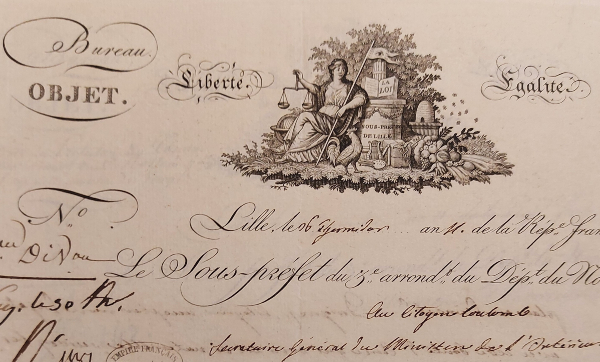
NapApps - Napoleonic Job Applications: from Personal Pleas to Modern Curriculum Vitae in Early 19th-Century Europe
Researcher: Dorit Raines (Fellow: Valentina Dal Cin), Lenght: 36 months (31/08/2024), Grant: € 251.002,56 (H2020 Marie-Sklodowska Curie Actions - Individual Fellowship)
The NapApps project investigates employment applications in Napoleonic bureaucracy, analyzing the transition from a petition-based model that characterized the ancient regime to a style that anticipated the modern curriculum vitae. To achieve this, the project applies text mining techniques to a vast corpus of archival sources. As Napoleonic France disseminated the revolutionary principle throughout Europe that public employment should be accessible to all based on their talents, the project assesses the prevalence of arguments based on knowledge and skills, in contrast to a more conventional emphasis on personal misfortunes or family needs. Given that applications were addressed to the government with the intention of garnering its favor, these documents enable an investigation into the comprehension of new values and mechanisms, thereby assessing the socio-cultural impact of political changes.
Cordis website
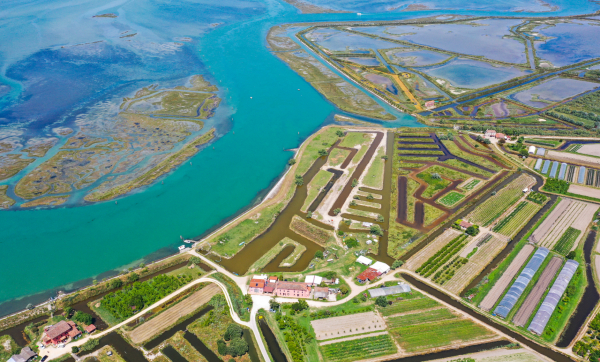
WaterScapes - Human-Environment interactions in and around Venice Lagoon: microecologies and geoarchaeological narratives from Roman Period to Middle Ages
Researcher: Daniela Cottica (Fellow: Alexandra Bivolaru), Lenght: 24 months (31/07/2024), Grant: € 172.750,08 (H2021 Marie-Sklodowska Curie Actions - Postdoctoral Fellowship)
In and around Venice Lagoon, the role of the environment didn’t have enough importance so far in the historical interpretation of the settlements and societal structures transformations from Antiquity to the Early Middle ages. Moreover, the existent historical narratives insufficiently consider the longue durée approaches in identifying human-environmental entanglement. WaterScapes project will address this major scientific gap about social aggregations and environmental transformation in and around Venice Lagoon from Roman times to Medieval period (2nd c. BC to 9th c. AD). The proposed objectives, methodology and trainings will offer a unique opportunity to evaluate the area in an historic and anthro-ecological perspective. WaterScapes will focus on micro-ecologies and geoarchaeological narratives, providing unique insights into the study of vulnerability, resilience and adaptation of human societies to challenging environments.
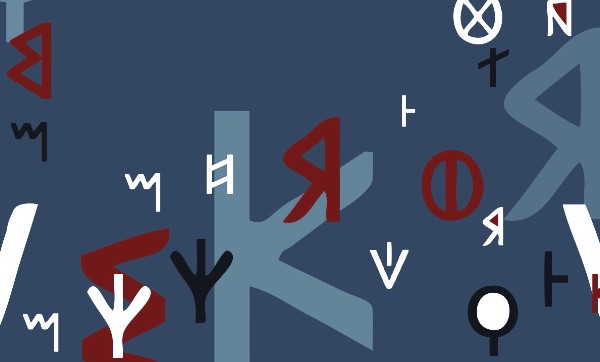
Languages and Cultures of Ancient Italy. Historical Linguistics and Digital Models
Researcher: Anna Marinetti, Length: 48 months (until 20/07/2024), Grant: € 271.420 (PRIN 2017)
The project Languages and Cultures of Ancient Italy. Historical Linguistics and Digital Models aims to study the languages and cultures of Ancient Italy (8th century BC-1st century AD) by combining the traditional methods of epigraphy and historical linguistics with digital tools adapted to the highly fragmentary nature of the epigraphic documentation of such languages. Due to the experimental nature of the project, at the moment we are focusing on four languages: Cisalpine Celtic, Venetic, Faliscan, and Oscan. The expected results of the project are a digital corpus of the inscriptions and a computational lexicon, linked with each other. The project, funded by the Italian Ministry of University and Research as a research project of relevant national interest (PRIN 2017), involves a consortium between the University Ca’ Foscari of Venice, the University of Florence, and the Institute for Computational Linguistics of the National Research Council of Italy, with the collaboration of historical linguists and computational linguists.
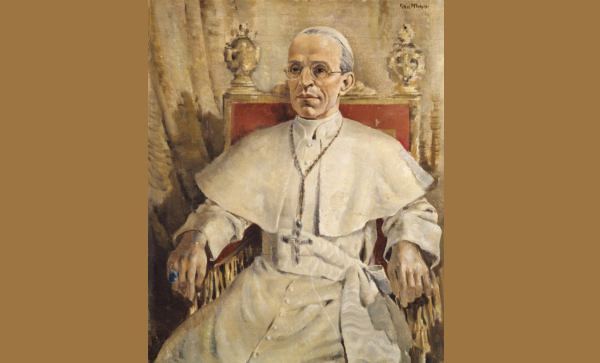
P.E.A.C.E - Pius XII Holy See facing the European Attempts for a Catholic Ecumenism after WW2 (1939-1958)
Researcher: Giovanni Vian (fellow Saretta Marotta), Lenght: 24 months (30/06/2024), Grant: € 135.264 (H2020 Marie Skłodowska-Curie COFUND “GLOBAL_AT_VENICE)
P.E.A.C.E. studies the reactions and strategies developed by the Holy See towards the growth of the international ecumenical movement and its influence within European Catholicism between the Second World War and the Second Vatican Council, i.e. the years of the pontificate of Pius XII (1939-1958). The opening of new resources at the Vatican Archives in March 2020 has rekindled historians' interest in this papacy: P.E.A.C.E. proposes not only a new subject, but also a new interpretive key to the pontificate of Pius XII. The hypothesis of the project is that these experiences of dialogue not only led to a theological renewal among Catholics that would later pave the way for the Second Vatican Council, but also that the impact of the ecumenical phenomenon caused conditioning and gradual openings in some areas within the Roman Curia (e.g. biblical, liturgical, etc). P.E.A.C.E. therefore analyses the dynamic of action-reaction between the activity of local groups engaged in Catholic ecumenism and the surveillance and control by the Roman authorities, combining the official Vatican documentation with the vast documentary heritage of individuals and institutions located throughout Europe.

LANLOSS - Landscapes of Loss: Mapping the Affective Experience of Deforestation Among Diverse Social Groups in the South American Chaco
Researcher: Valentina Bonifacio (Fellow: Tamar Blickstein), Length: 48 months (until 12/06/2024), Grant: € 171.473,28 (H2020 - Marie Sklodowska-Curie Individual Fellowship)
Environmental upheavals generate losses across diverse sectors of society, and can heighten risks of social conflict (UNCCD 2017). Mapping the histories, memories and affective experiences of such losses among impacted communities could help expose incipient social tensions before they escalate. In the South American Gran Chaco, the rate of deforestation – which is among the highest in the world – is impacting the landscapes and livelihoods of indigenous, peasant, and white settler groups in both shared and competing ways. By working together with satellite data researchers, this multi-disciplinary project proposes an innovative collaborative approach to mapping the lived social and affective experience of rapid deforestation in the Gran Chaco through participatory memory-mapping: a process where local communities with antagonistic histories are invited to interact with the satellite data themselves, generating their own narratives of the various landscapes they have lost through a technique I call “affective mapping.” This collaborative approach enables both multi-disciplinary researchers as well as locals to develop new comparative understandings of how deforestation impacts communities in both shared and unequal ways, thus providing contexts for better understanding incipient tensions over resources and land.
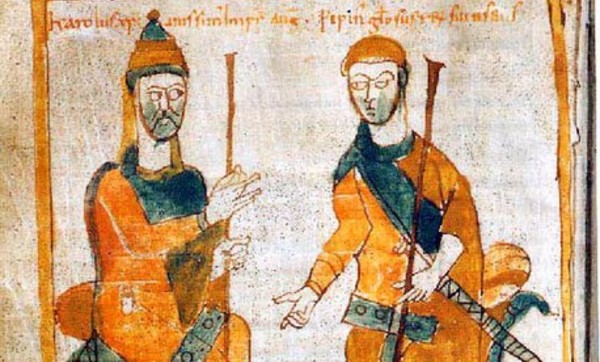
Ruling in hard times. Patterns of power and practices of government in the making of Carolingian Italy
Researcher: Stefano Gasparri, Lenght: 48 months (until 17/03/2024), Grant: € 182.286 (PRIN 2017)
This research project aims at investigating the patterns of power and practices of government during the consolidation of the Carolingian domination in Italy. It will focus more particularly on the years of Lothar I’s reign (822-850). The project intends to analyse from a top-down perspective the strategies, tools, levels of innovation and ways of representation of political rule and, from a bottom-up approach, the mutual interaction between central authority and local power. Such an interaction was an expression of the real nature of Carolingian governance. In order to achieve this, a prosopographical open-access and open-source database will be designed, which will record basic and specific information on the officials and other agents of power - including their roles, itineraries and mutual relations - to be represented by chronological maps and socio-political network diagrams. In this way, we hope to fill the gap which, over the last twenty years, has often cut off Italian medievalists from the international debate, both in terms of historiographical approaches, and in relation to open access research tools.
Project website: Ruling in hard times
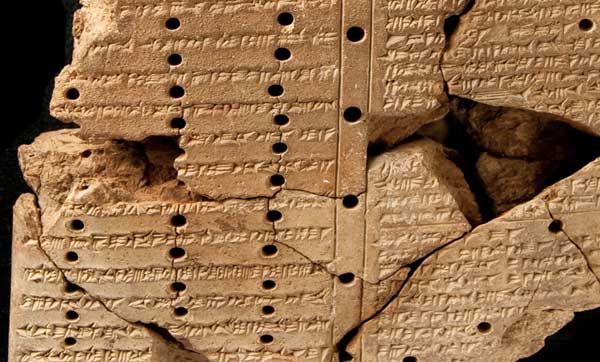
Liber - The King’s Librarians at Work. Applying Machine Learning and Computer vision to the study of scribal marks on cuneiform tablets
Researcher: Paola Corò, Length: 37 months (until 30/04/2023), Grant: € 72.500 (SPIN 2 - Standard)
Among the 30,000 cuneiform tablets that make up the famous Library of Ashurbanipal, a substantial number of literary and scholarly texts include holes placed on the surface alongside the written text and/or the edges. Different theories on their function have not led so far to a systematic study of these marks. The project aims at continuing a preliminary investigation that suggests the existence of different set of holes and a possible meaningful connection with the textual content of the tablets where they appear. The understanding of their genesis and function will also shed light on the procedures and mechanisms underpinning the Library's formation, its ordinary management by the king's librarians and the scribes’ work. The project, which will take advantage of the application of Machine Learning and Computer Vision to the study of these holes on cuneiform tablets, will be carried out in partnership with the Center for Cultural Heritage and Technology of the IIT, and the The Ashurbanipal Library Project (PI Jon Taylor, curator at theDept. of Middle East of the British Museum) and it has received funding from Ca' Foscari University under the SPIN call for proposals 2019 - Measure 2.
Project website: Liber
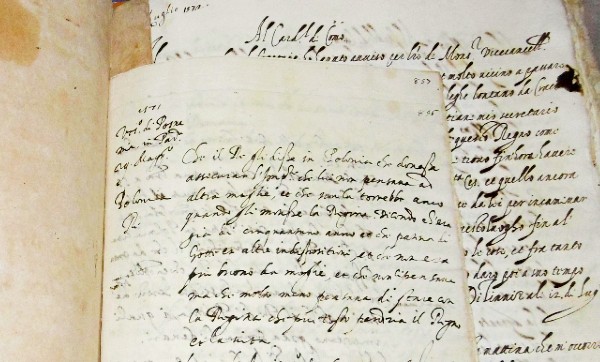
The Nuncio's Secret Archives: Papal Diplomacy and European Multi-denominational Societies Before the Thirty Years War
Researcher: Dorit Raines, Lenght: 42 months (until 17/09/2023), Grant: € 159.320 (PRIN 2017)
Through a pioneering approach integrating Digital Humanities and traditional research, the project aims to reorganize for the first time an extraordinary private archive, now divided between Italy and Kansas, decisive for reconstructing the history of papal diplomacy in the crucial period between the peace of Augsburg (1555) and the Thirty Years War. The archive, created by two of the most high-ranking diplomats of the late 16th century, G.F. Commendone and A.M. Graziani, will be valorized through the portal Graziani Archives, which, in addition to providing a reference model for the interrogation and study of private political archives of modern age, will give access to unpublished documentation, mostly informal and very different from the official and already known one, describing with unprecedented richness and depth the vast networks activated by papal diplomats, their relationship with the regular orders and the clash between papacy and multi-confessional space. The construction of the portal, combined with a rigorous historical-archival investigation, will activate a research laboratory that will give an impulse to a new interpretive perspective, capable of finally including the history of papal diplomacy in the European historiographical debate on multi-confessionality.

Political prisoners: a transnational question in 19th century Italy
Researcher: Simon Levis Sullam (Fellow: Elena Bacchin), Length: 36 months (until 30/09/2022), Grant: € 251.002,56 (H2020 - Marie Sklodowska-Curie Individual Fellowship)
This research project is a transnational historical investigation which examines the international role and representations of Italian political prisoners during the 19th century. Its goal is to investigate how and to what extent political prisoners were key figures not only in the construction of an Italian nationalist discourse, but equally in the foreign understanding of and commitment for the Italian Risorgimento. Moreover it will delineate how humanitarian debates operated in the commitment towards a national political cause. The project will place political detainees beyond legal and political history, and insert them in the context of the new questions raised by transnational and cultural history, and by the history of humanitarianism. I argue that political prisoners acted as political and patriotic agents at home as well as abroad. Not only did the experience of imprisonment influence the detainees’ political activities and identities, and help to create a sense of national community; but it influenced the representation of the Italian national movement abroad. The project will offer a new approach in studying political imprisonment emphasising its international and humanitarian dimension and will challenge the current state-of-theart, highlighting how political prisoners were an international concern already in the 19th century. Finally the research will help to understand the historical evolution of a European sensitivity and a commitment towards political detainees, refugees and people persecuted for political opinions and the evolution of international protection and humanitarian discourses. There is a running thread between these historical issues and questions concerning political prisoners in the world today and the international awareness and concern about them. The research project is a multi-lingual and multi-archival study that will employ an interdisciplinary and a transnational approach.


